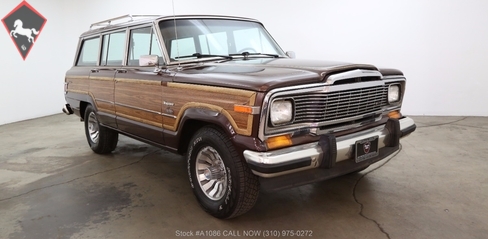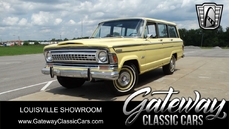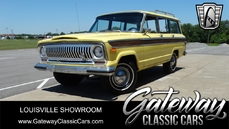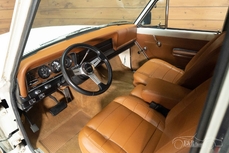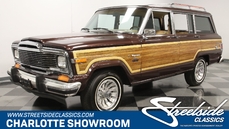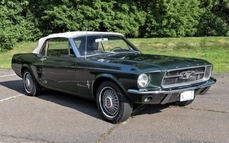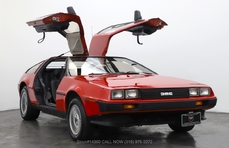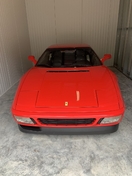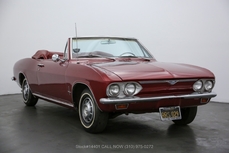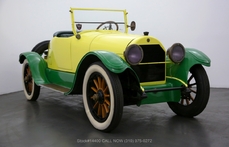Jeep Wagoneer 1981
General description :
1981 Jeep Wagoneer Limited in Chestnut Brown Metallic exterior with faux wood paneling over Nutmeg leather interior comes equipped with a strong V8 motor, automatic transmission and full-time 4-wheel drive. This 5-door wagon body sports power steering, power windows and power seats. Mechanically sound. For $15,750.
https://www.beverlyhillscarclub.com/1981-jeep-wagoneer-limited-c-7754.htm
1981 Jeep Wagoneer is listed sold on ClassicDigest in Los Angeles by Beverly Hills for $15750.
Car Facts
Car type : Car Make : Jeep Model : Wagoneer Engine size : 0.0 Model Year : 1981 Location : Los Angeles, CA 90063 USA
Sold
Seller Information
Sold
People who viewed this Jeep Wagoneer also viewed similar Jeep listed at ClassicDigest
Other cars listed for sale by this dealer
About Jeep
The history of Jeep is a tale of rugged innovation and an iconic journey from its roots as a military workhorse to its various civilian versions, including American competitors to the Range Rover.The Birth of the Jeep:
The Jeep story began during World War II when the U.S. Army put out a call for a small, versatile, four-wheel-drive vehicle. Several American automakers responded, but the Willys-Overland company, along with its partner Ford, ultimately won the contract. The result was the Willys MB, an agile and tough vehicle that quickly earned the nickname "Jeep." The name's origin is a subject of some debate, but it's believed to have been derived from the military phonetic alphabet's "GP" designation, which stood for "General Purpose" or "Government Purpose."
World War II Service:
Jeeps became the backbone of the American military, serving in various roles from reconnaissance to medical transport. Their durability, four-wheel-drive capability, and ease of maintenance made them invaluable during the war. They were used in all theaters of the conflict and left an indelible mark on military history.
Post-War Transition:
After World War II, many surplus military Jeeps found their way into civilian hands, and their utility became evident beyond the battlefield. Recognizing this potential, Willys-Overland began producing the CJ (Civilian Jeep) series, starting with the CJ-2A in 1945. These early civilian Jeeps retained their military roots but were adapted for farm, ranch, and off-road use. They soon gained popularity among outdoor enthusiasts and those in need of a rugged, capable vehicle.
The Jeep Brand Expands:
Over the decades, the Jeep brand continued to evolve, introducing a wide range of models to cater to different consumer needs. The Jeep Wagoneer, introduced in 1963, was one of the earliest luxury SUVs and a competitor to the Range Rover, offering four-wheel drive and a comfortable ride.
The Jeep Cherokee, introduced in 1974, was a pioneering compact SUV that combined off-road capability with on-road comfort. Its success laid the foundation for the modern SUV segment.
In 1984, Jeep introduced the Jeep Grand Cherokee, which further advanced the brand's presence in the luxury SUV market. The Grand Cherokee was designed to deliver a refined driving experience without sacrificing its off-road prowess.
Jeep Wrangler, which evolved from the CJ series, has remained a steadfast symbol of off-road capability and rugged adventure. The Wrangler has garnered a devoted following of enthusiasts who appreciate its simplicity and go-anywhere attitude.
Jeep Renegade, Jeep Compass, and Jeep Gladiator are examples of modern Jeep models that cater to a wide range of consumer preferences and market segments.
American Competitors to the Range Rover:
While Jeep has produced various models to compete in the luxury SUV market, including the Grand Cherokee, they have also faced competition from American automakers like Cadillac and Lincoln, which have introduced their own luxury SUVs to compete with the Range Rover. These vehicles offer a blend of comfort, technology, and off-road capability, making them alternatives to the Range Rover for American consumers.
In conclusion, the history of Jeep is a story of adaptability and innovation, with the brand transitioning from its military origins to become a symbol of rugged individualism and adventure. Jeep's ability to blend off-road capability with on-road comfort has made it a respected and iconic American brand in the world of 4x4 vehicles.
